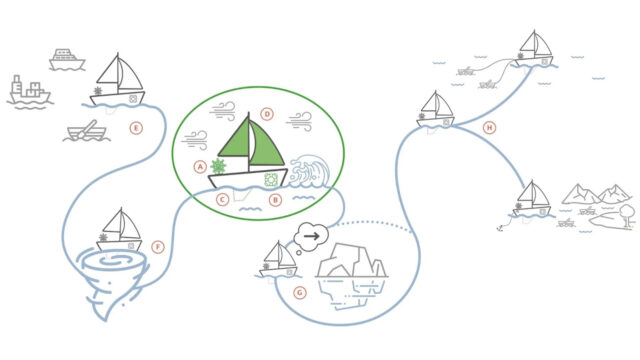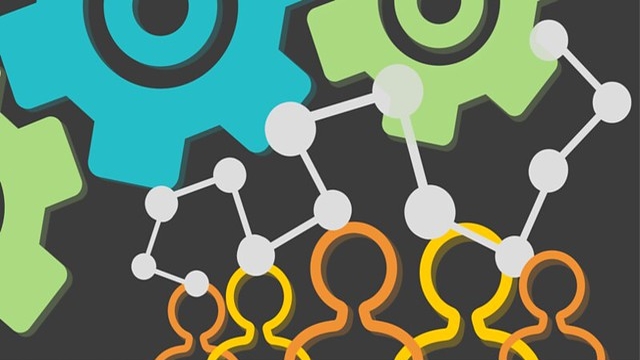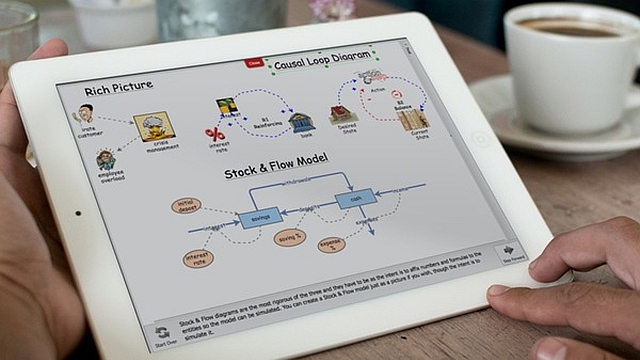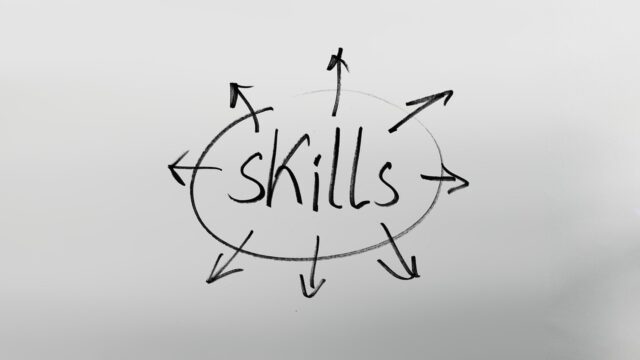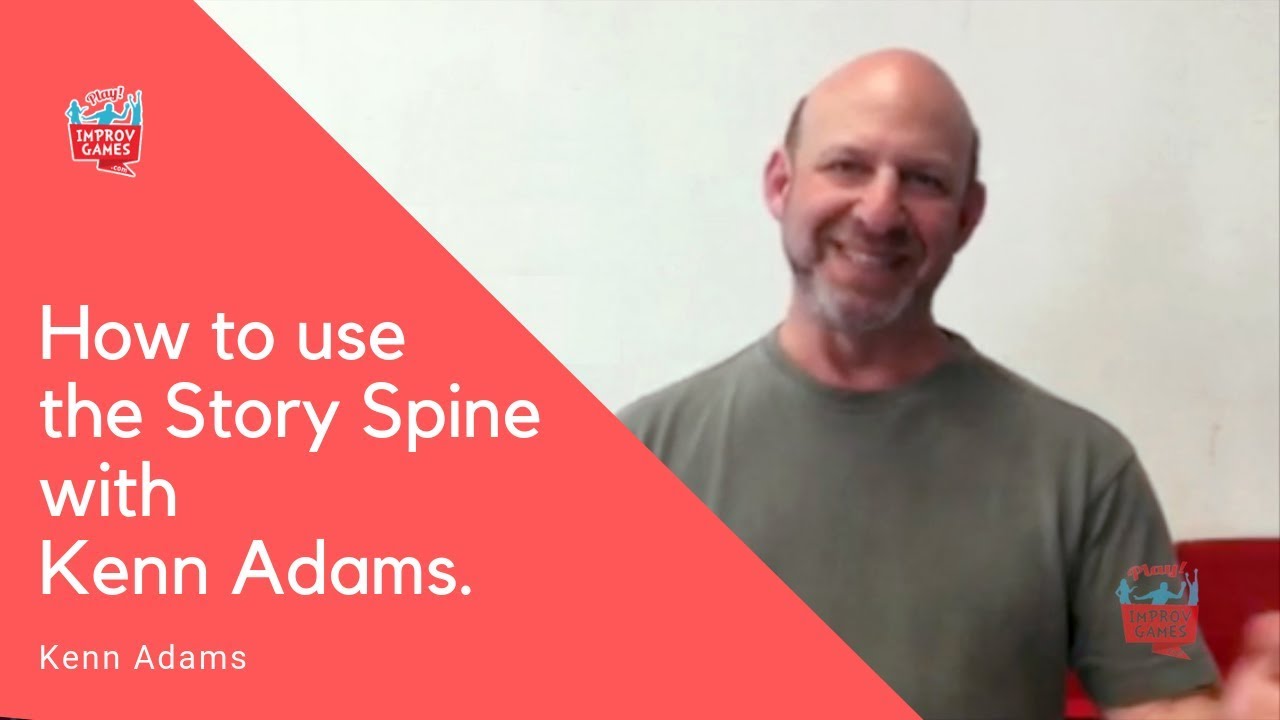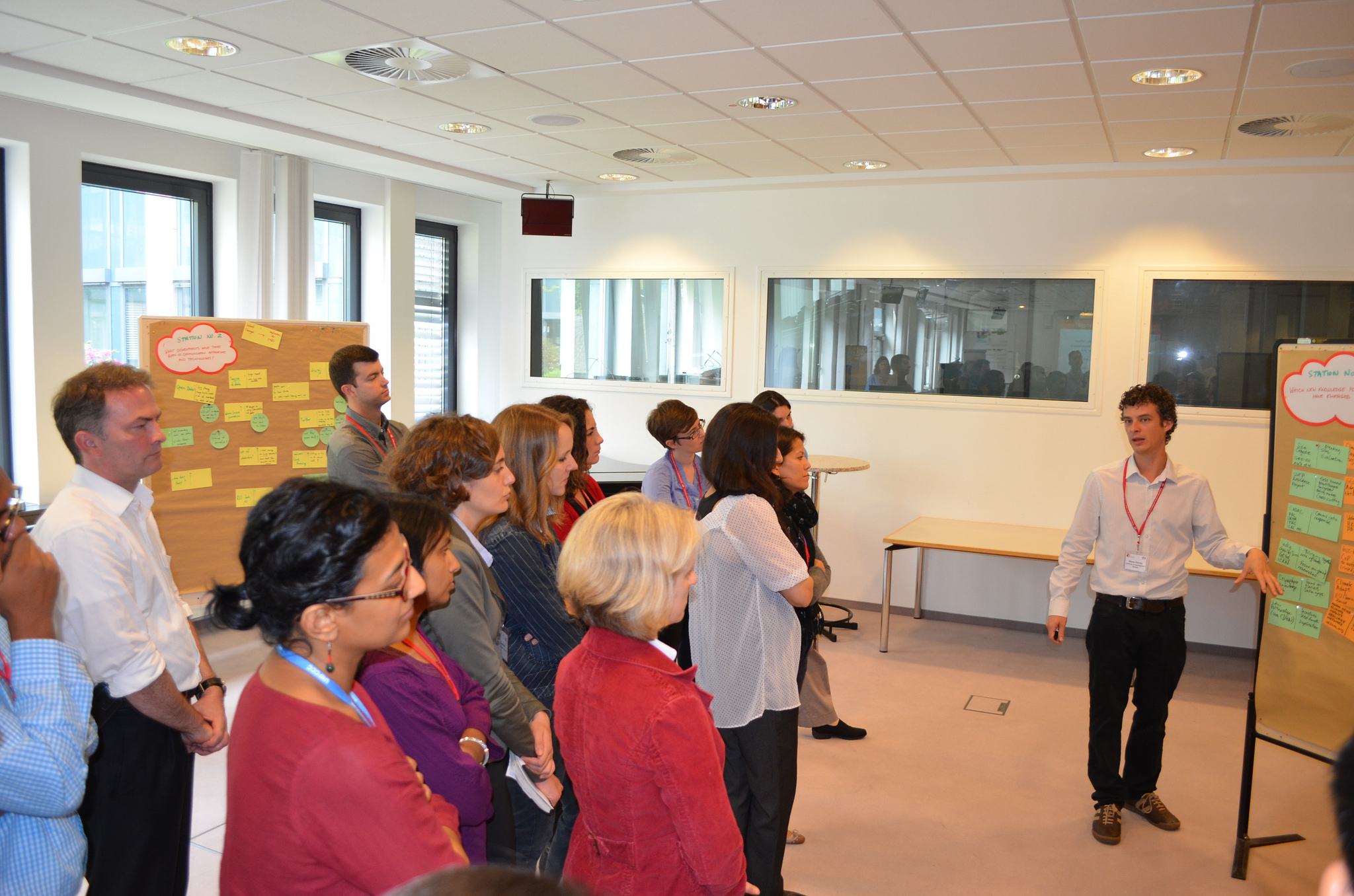
Facilitating narratives for knowledge co-production: A knowledge broker’s role
By Faye Miller and Jess Melbourne-Thomas. Originally published on the Integration and Implementation Insights blog.
How can knowledge brokers facilitate transdisciplinary knowledge co-production and mobilisation? How can a narrative approach contribute to the knowledge co-creation process?
A knowledge broker often sits between different stakeholders (researchers, end-users, policymakers) to facilitate knowledge co-creation and knowledge mobilisation. Their main role is to make evidence accessible, understandable and useful for knowledge users. As knowledge mobilisation is usually experienced by participants as a personal and social activity, a key starting point for facilitating knowledge co-production with different stakeholders is to develop a narrative approach.
The narrative approach focuses on how people co-construct their professional and personal identities, and being constantly aware of their own story, why they are knowledge brokering and for whom. The narrative approach also encourages curiosity about the stories around concepts, products, services and life experience from people they might interact with as part of the knowledge brokering process.
Benefits of a narrative approach relevant to the knowledge brokering roles include:
- Bridging and blending research evidence (that usually stays siloed) together with practice, policy, end-user based knowledge;
- Nurturing and maintaining dynamic and adaptive partnerships;
- Making conflict between diverse groups a positive force by using it to generate shared understanding;
- Enabling shared concepts and/or objects for policy and practice to be seen from different perspectives;
- Building trust and respect; and,
- Engaging stakeholders through hearts and minds by connecting with their personal values.
In essence, the knowledge broker’s role in facilitating narratives has two purposes:
- identity development – the importance of knowing their narrative in strengthening partnerships, and,
- how to facilitate narratives in transdisciplinary groups using the techniques of small stories and collective making.
Identity development for knowledge brokers
Knowing their narrative is key to success as a knowledge broker – to define their powerful story, reflecting on their journey and future pathways, showing where they have come from, how the story reflects their core values and how their values shape their professional identity and purpose. Core values are often developed in formative years and evolve with experience.
The broad spectrum and unpredictable nature of knowledge brokering as a career offers an opportunity for self-definition, aligned to the goals or needs of a knowledge brokering role, project and stakeholders. Some benefits of knowing their narrative include:
- increasing self-awareness for building confidence, courage, self-efficacy, self-actualisation and career satisfaction;
- acting as a guide for finding and attracting career opportunities that align with their values and purpose;
- defining their physical presence or online identity; and,
- making it easier for stakeholders to engage, relate and connect into their or another’s work role.
Knowledge brokers can consolidate their own personal narratives with a career development consultant or with other knowledge brokers working in a particular area. The purpose of career development using a narrative approach is to facilitate creating awareness of meanings and patterns through life storytelling.
The figure below shows an example of a personal narrative in a career map format. Career maps can be drawn in many different ways. The example below places the current or future knowledge broker at the centre of their narrative. They are self-defined by the formation of core values which shape their answers to reflective questions around their purpose, problems, skills, competencies and actions, to be revisited throughout their career trajectory.
Drawing a career map can enable knowledge brokers to trace and communicate when their personal values formed in early life, education and various work experiences in research, practice and/or policy settings. For example, some values (yellow) may have been formed in early life and may become important again at a later career stage. Other values (blue and pink) are consolidated and evolved during particular work roles, developed from unique combinations of experience towards knowledge brokering and intermediary roles.
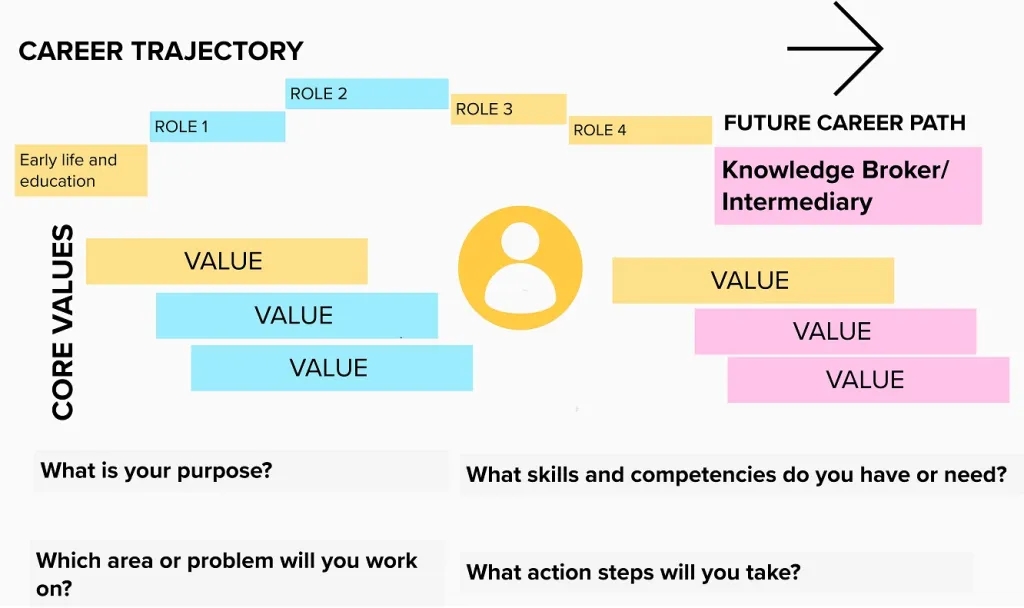
Knowing their own narrative is also an essential step for a knowledge broker towards developing a transdisciplinary mindset, which in turn promotes self-efficacy, self-reliance, and proactivity in forming partnerships and exercising adaptive leadership.
Facilitating narratives in transdisciplinary groups
Knowledge brokers can use the narrative approach to enable co-creating and sharing stories at suitable times in the knowledge co-production process. It can be useful to think of narratives as the diverse meanings and dialogues that are shared among stakeholders. For example, if resilience thinking and stewardship are implemented as boundary objects for engagement with policy makers and the public, facilitating storytelling around these bridging concepts can help improve the uptake, transfer and innovation of research findings.
Techniques such as small stories and collective making may be implemented for stimulating knowledge co-production. Small stories are micro-narratives often focusing on moments in time that capture for example, incidents, case studies, actions, memories, cultural meanings or local contexts. Small stories, viewed as complementary to big stories such as life biographies and end-user journeys, can briefly represent and stimulate dialogues on the larger, long-term issues being tackled by a transdisciplinary group.
For example, a knowledge broker may facilitate a group session by sharing their own compelling story about why their area of interest needs knowledge brokering. They would invite participants to share small stories on how they have personally experienced bridging concepts such as stewardship or resilience in their context. The knowledge broker actively listens to combine small stories from research, policy and practice, noting points of difference, commonalities, conflicts or gaps in knowledge, and making these insights accessible.
This could be followed up with a hands-on collective making activity informed by insights gained from blended storytelling, to co-design outputs that act as boundary objects, such as service or product prototypes. Collective making produces things that embody joint knowledge, while being mindful of the context of their application, thus are more likely to be actionable.
Concluding remarks
Using the narrative approach to develop self-knowledge and identity, and to powerfully communicate where one stands, is crucial for knowledge brokering. It is equally important to be able to balance this through deep listening with empathy and shared understanding with those one is negotiating with – policy and practice collaborators, authorities, research end-users, and also with people who provide instrumental and emotional support outside of knowledge brokering.
Shared understanding in practice goes beyond finding a shared narrative, to helping people understand and navigate conflicting differences in worldviews. It also respects that many cultural stories require appropriate authority to tell or share. Through listening to diverse narratives, creative intelligence can be generated from unusual interactions.
A narrative approach to developing one’s identity, facilitating narratives in transdisciplinary groups to co-design boundary objects and negotiating a shared understanding can enable compelling engagement for stakeholders in a number of knowledge brokering tasks and scenarios – while facilitating continuous dialogues and translating research into action.
Does the narrative approach resonate with your experiences as a knowledge broker or intermediary? Can you think of any other scenarios where knowledge brokers might benefit from narrative approaches?
Acknowledgements:
This blog post is based on a session facilitating narrative career development for knowledge brokers at the 2022 Connecting the Dots Knowledge Brokering Symposium supported by the Australian Academy of Science through the Theo Murphy Initiative.
Biographies:
 |
1. Faye Miller PhD is Director and Principal Consultant at Human Constellation, a research and career development consulting service for researchers, academics and practitioners from diverse backgrounds and career stages. She is a qualified and experienced career development practitioner, and also a transdisciplinary researcher and knowledge broker in the area of social technology for mental health, wellbeing and social sustainability. She is currently based in Canberra, Australia. |
 |
2. Jess Melbourne-Thomas PhD is a transdisciplinary researcher and knowledge broker, and leads the Marine Socio-ecological Systems Team in the Coasts and Oceans Research Program with CSIRO Oceans & Atmosphere in Hobart, Australia. Her background is in mathematical modelling and Antarctic climate change science, and in her current role is helping to connect research to decision-making for sustainability and climate change adaptation. |
Article source: Facilitating narratives for knowledge co-production: A knowledge broker’s role.
Image source: Feeding back discussion boards at Climate Knowledge Brokers Workshop by Climate & Development Knowledge Network is licenced by CC BY-NC 2.0.

